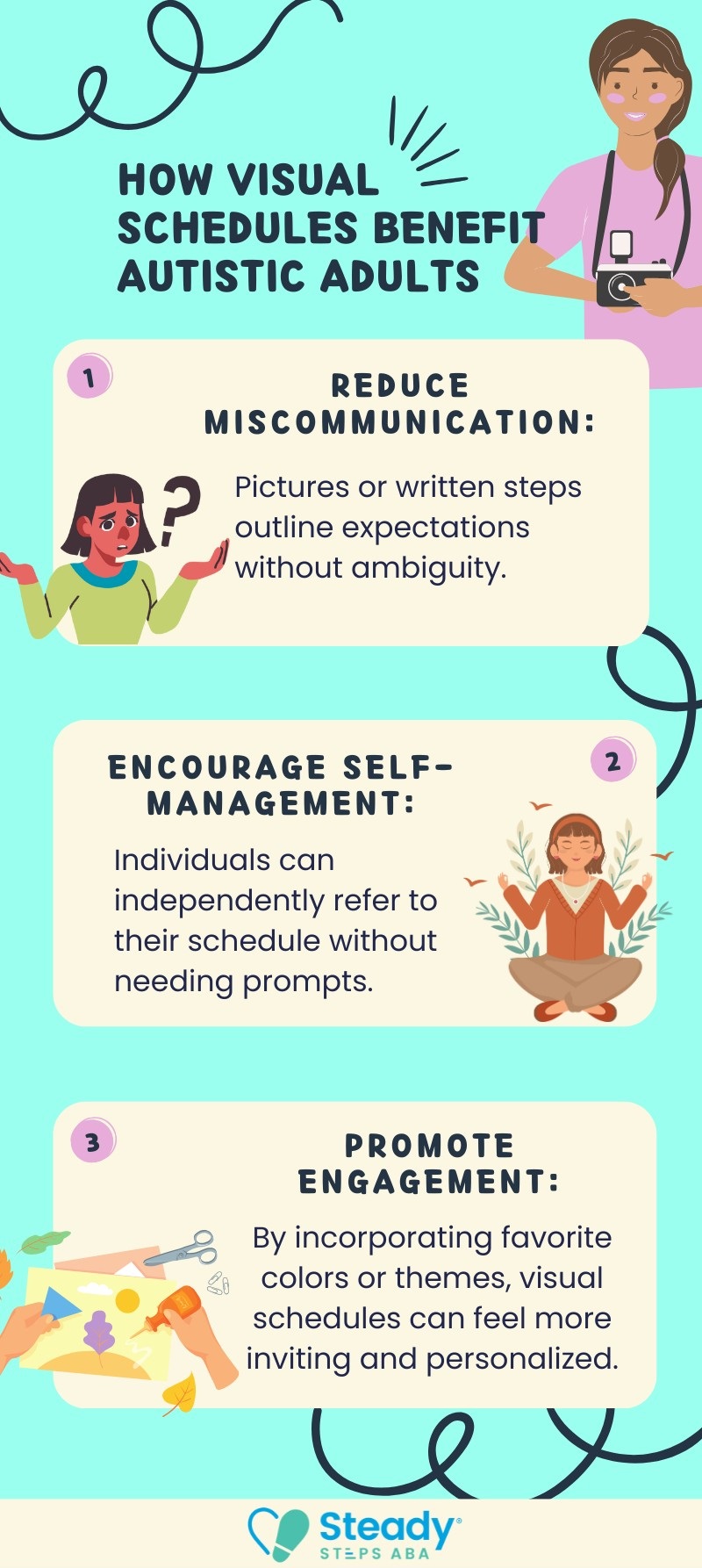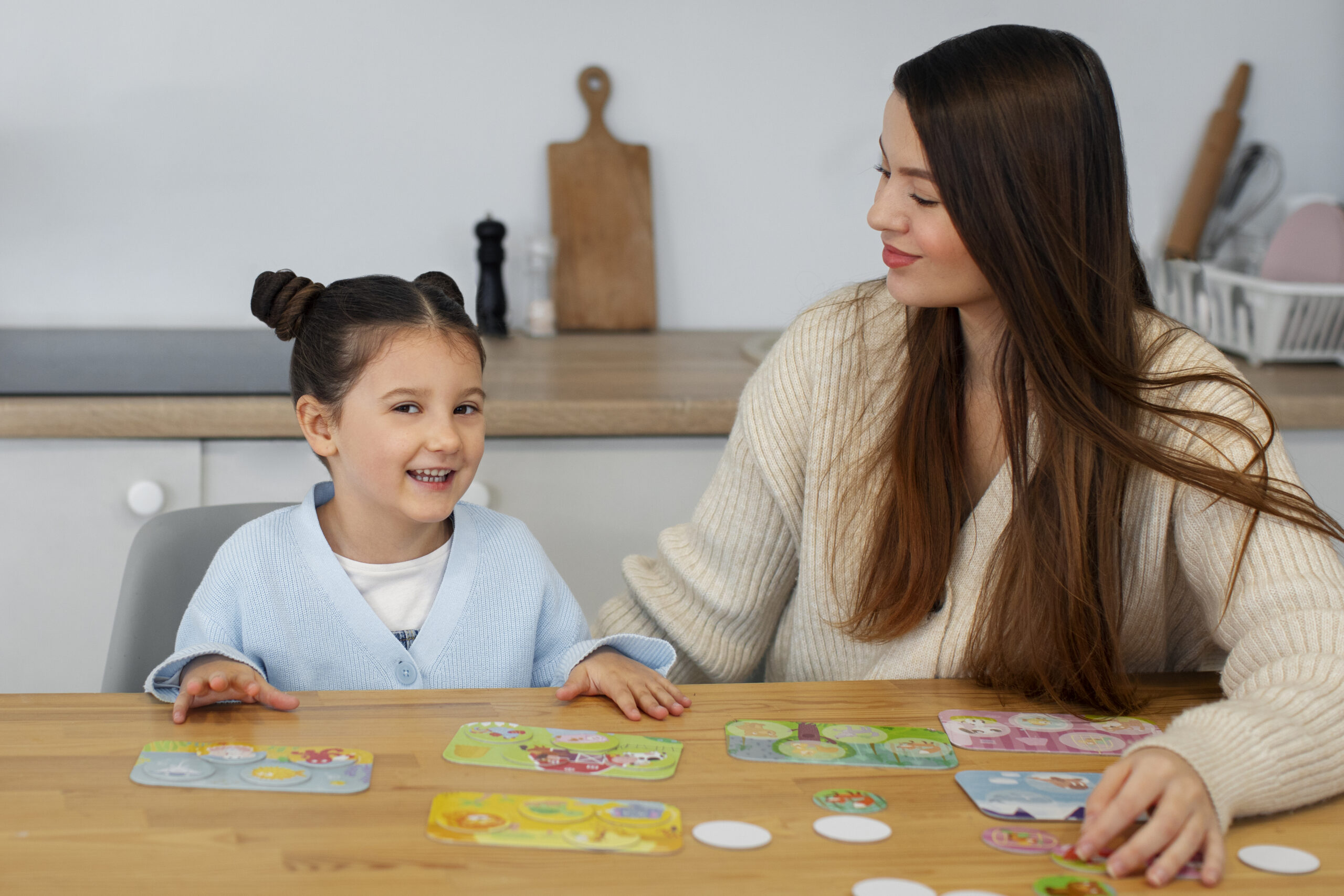Key Points:
- Routines can provide structure, reduce stress, and enhance independence for autistic adults.
- Establishing effective routines involves personalization, flexibility, and gradual adjustments.
- Examples include morning routines, workday organization, and leisure activities.
Creating and maintaining daily routines can significantly enhance the quality of life of those on the autism spectrum. These routines are not just helpful—they’re often essential in supporting independence, reducing anxiety, and improving overall well-being. In this guide, we’ll explore practical tips and examples of routines for autistic adults, alongside the proven benefits of incorporating structured daily habits.
What Are the Benefits of Routines for Autistic Adults?
Establishing routines helps provide predictability, reducing uncertainty and stress for autistic adults. This is crucial, as many individuals on the spectrum thrive with clear expectations and consistent patterns. Predictability can also minimize sensory overload, a common challenge for autistic adults navigating environments filled with unexpected changes or stimuli.
Beyond predictability, routines can:
- Foster Independence: With regular routines, tasks like cooking, managing appointments, and self-care become second nature, empowering individuals to navigate life with less external support.
- Enhance Time Management: Structured schedules make it easier to allocate time for work, hobbies, and rest, avoiding feelings of overwhelm.
- Promote Emotional Regulation: Familiar routines can provide a sense of safety, reducing anxiety during transitions or new experiences.
Incorporating consistent routines into daily life is one of the most effective ways to support long-term well-being and autonomy.
How to Create Effective Routines for Autistic Adults
Creating routines that truly work requires intentional planning and a deep understanding of individual needs. Every autistic adult is unique, so their routines should reflect their personal preferences, strengths, and challenges.
1. Start Small and Build Gradually
It can be overwhelming to implement an entirely new schedule overnight. Instead:
- Focus on one or two small habits at first, such as setting a consistent wake-up time or dedicating a specific time to a favorite activity.
- Build on these habits slowly, adding more tasks as they become comfortable.
2. Personalize the Routine
Autistic adults have diverse interests and sensory sensitivities. Tailor routines by:
- Including enjoyable activities like hobbies or relaxation techniques.
- Choosing a format (written lists, visual schedules, or apps) that suits the individual’s preferences.
3. Stay Flexible
While consistency is key, rigidity can be counterproductive. Life is unpredictable, and routines should have some adaptability to accommodate unforeseen circumstances without causing distress.
For example:
- Add a buffer period between activities.
- Use calming strategies, like deep breathing, to handle interruptions.
Examples of Routines for Autistic Adults
The right routine will vary depending on lifestyle, goals, and needs. Here are a few examples of practical routines for autistic adults:
Morning Routine
Mornings set the tone for the day. A structured morning routine can reduce stress and ensure essential tasks are completed.
- Wake up at the same time daily.
- Follow a self-care regimen (brushing teeth, washing face, etc.).
- Prepare and eat breakfast.
- Review the day’s schedule or to-do list.
Including calming activities like journaling or listening to music can help ease into the day.
Workday or School Routine
For those employed or attending classes, having a clear schedule helps with time management and focus.
- Set fixed hours for work or study sessions.
- Include short breaks (e.g., a 10-minute stretch after 50 minutes of work).
- Schedule lunch at the same time daily.
- Use alarms or timers as reminders for transitions.
Evening Routine
Winding down at the end of the day is just as important as starting it well.
- Engage in leisure activities like reading or watching TV.
- Prepare for the next day (e.g., laying out clothes, packing a bag).
- Follow a calming bedtime routine (e.g., taking a warm shower, practicing mindfulness).
- Go to bed at the same time to support healthy sleep patterns.
Why Are Visual Schedules Helpful for Autistic Adults?
Visual schedules provide a clear and concise way to communicate routines, especially for individuals who process information better through images or diagrams. These tools can:

To create a visual schedule:
- Use a whiteboard or a digital app.
- Break down activities into manageable steps.
- Add images or symbols to represent each task.
Tips for Maintaining Consistency with Routines
Consistency doesn’t happen overnight, but these strategies can help ensure routines become a sustainable part of daily life:
- Use Reminders: Apps, alarms, or sticky notes can provide helpful prompts for routine tasks.
- Celebrate Progress: Acknowledge milestones, no matter how small, to build motivation.
- Seek Support: Involving family, friends, or professionals can reinforce accountability and encouragement.
- Adapt Over Time: As needs and circumstances change, revisit and adjust routines to ensure they remain effective.

How Can ABA Therapy Support Routines for Autistic Adults?
Applied Behavior Analysis (ABA) therapy can play a pivotal role in building and maintaining effective routines. This evidence-based approach focuses on teaching essential skills through positive reinforcement and individualized strategies. ABA therapists often:
- Help identify barriers to completing daily tasks.
- Design step-by-step plans for integrating new habits.
- Offer tools for navigating changes or challenges in routines.
With professional guidance, autistic adults can develop routines that enhance their independence and improve their quality of life.
Ready to Build Better Routines? Steady Steps ABA Can Help!
If you or a loved one is seeking support to establish meaningful and effective routines, Steady Steps ABA offers compassionate, evidence-based ABA therapy in Maryland tailored to each individual. Our experienced team helps autistic adults and their families create structured, fulfilling daily habits that promote independence and well-being.
Get in touch to learn more about our services and how we can help!






